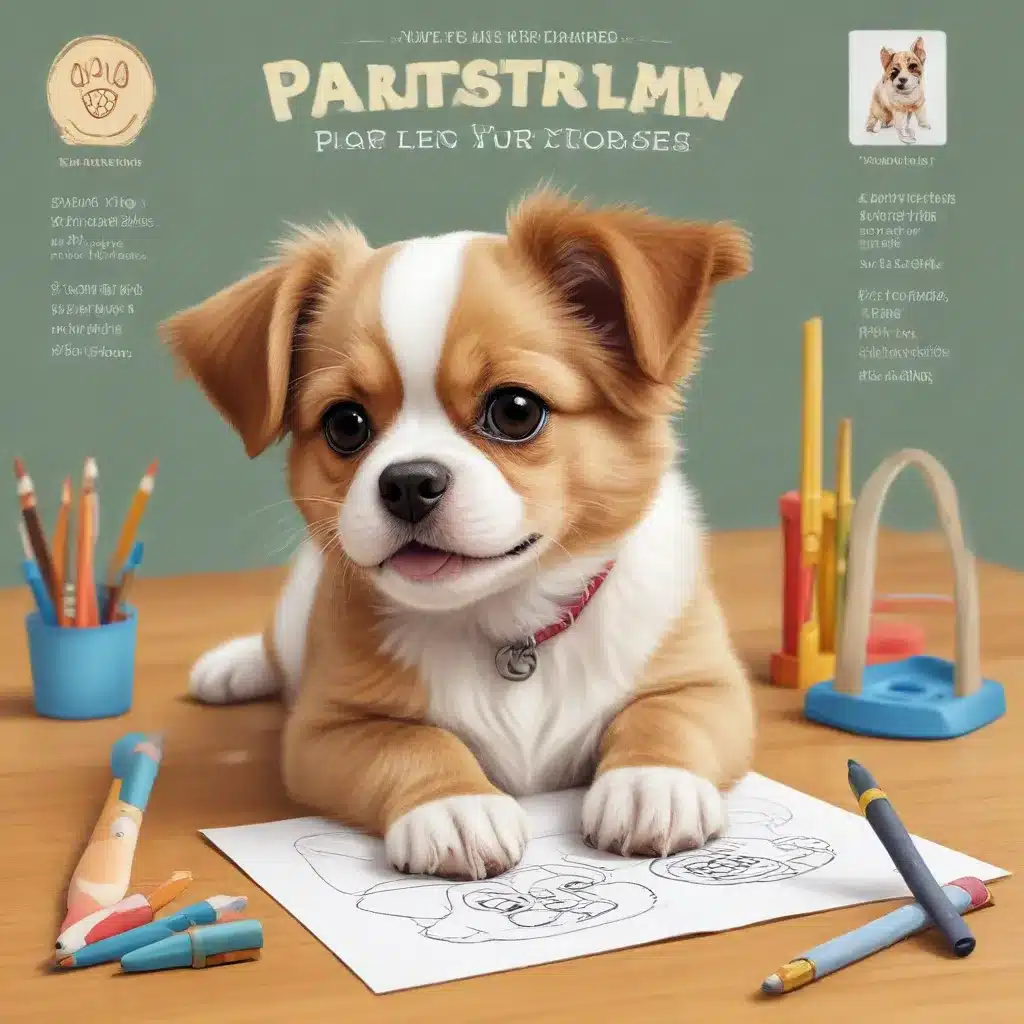
Whether you’re a lifelong pet owner or simply an animal lover, capturing the unique personalities of our furry, feathered, and four-legged friends can be an immensely rewarding artistic pursuit. From the expressive eyes of a beloved cocker spaniel to the regal bearing of a majestic weimaraner, the world of pet portraiture offers endless inspiration for the creative mind. In this article, we’ll explore a variety of techniques, approaches, and exercises to help you unleash your inner pet portrait artist.
Art Techniques for Pet Portraits
Sketching Essentials
The foundation of any great pet portrait begins with strong drawing skills. Start by practicing quick sketches, focusing on capturing the essential shapes and proportions of your subject. Pay close attention to the tonal range – the gradation from light to dark – to bring depth and dimension to your drawings. Experiment with different media, such as graphite, charcoal, or colored pencils, to find the tools that best suit your style.
Capturing Fur and Texture
One of the most challenging, yet rewarding, aspects of pet portraiture is rendering realistic fur and textures. Develop your observational skills by closely studying the unique patterns and varied densities of your subject’s coat. Techniques like hatching, cross-hatching, and stippling can be effective for suggesting the soft, wispy quality of fur, while impasto brushwork can capture the bold, textural qualities of a horse’s mane or a cat’s ruff.
Mastering Facial Features
The eyes, nose, and mouth are the windows to an animal’s soul, and capturing these features with sensitivity and accuracy is key to creating a compelling pet portrait. Practice drawing the distinctive shapes and proportions of different species, paying close attention to the nuances that make each animal unique. Experiment with chiaroscuro – the interplay of light and shadow – to heighten the realism and emotional impact of your subject’s expression.
Capturing Canine Companions
Drawing Dogs in Action
Dogs are renowned for their boundless energy and playful spirit, so don’t be afraid to depict them in dynamic, action-packed poses. Sketch your canine subjects in mid-stride, leaping for a toy, or romping through a field. Capture a sense of movement and kinetic energy by experimenting with gestural drawing techniques and emphasizing the rhythmic flow of their muscular forms.
Portraying Pup Personalities
Every dog has a unique personality, from the loyal, steady gaze of a border collie to the mischievous, tongue-lolling grin of a weimaraner. Observe your furry friends closely and aim to translate their individual quirks and characteristics into your artwork. Consider incorporating subtle details, like a wagging tail or perked ears, to convey your subject’s mood and temperament.
Crafting Canine Caricatures
For a playful twist on traditional pet portraiture, try your hand at creating exaggerated, caricature-style drawings of dogs. Emphasize the distinctive features that make each breed unique, such as the brachycephalic (short-faced) characteristics of pugs or the long, pointed snouts of greyhounds. Embrace a whimsical, humorous approach to capture the endearing essence of your canine muse.
Feline-Focused Artwork
Elegance of Cats
Cats are renowned for their graceful, lithe movements and regal bearing. Capture the elegance and poise of your feline subjects by focusing on the clean, flowing lines of their form. Experiment with minimalist drawing styles that emphasize the essential shapes and negative space surrounding your subject, allowing their inherent sophistication to shine through.
Dynamic Cat Poses
Cats are masters of dynamic, acrobatic movement, whether they’re pouncing on a toy, stretching luxuriously, or curling up in a cozy nap. Challenge yourself to depict your feline subjects in a variety of active poses, exploring foreshortening and perspective to convey a sense of depth and three-dimensionality.
Whimsical Cat Cartoons
For a more lighthearted approach, try your hand at creating cartoon-style cat drawings that capture the playful, mischievous side of our feline friends. Exaggerate the distinctive features of different breeds, like the pointed ears of Siamese cats or the fluffy tails of Maine Coons, and infuse your illustrations with a sense of humor and personality.
Exploring Other Pets
Horses and Hooves
Horses are beloved companions and working animals, prized for their strength, grace, and majestic presence. Develop your skills in depicting the powerful musculature, long, graceful limbs, and intricate hoof structures of these magnificent creatures. Experiment with different angles and compositions to showcase the noble bearing of your equine subjects.
Birds in Flight
Whether sketching a soaring eagle, a perched songbird, or a strutting peacock, capturing the dynamic movement and delicate features of avian species can be a rewarding challenge. Pay close attention to the intricate plumage patterns and the anatomical nuances that distinguish different bird species, and strive to convey a sense of lightness and aerial grace in your drawings.
Exotic Animal Experiments
For the more adventurous artists, exploring the unique forms and textures of exotic pets, like reptiles, amphibians, or small mammals, can be a thrilling creative endeavor. Observe the distinctive scales, patterns, and appendages of your subjects, and experiment with a variety of drawing techniques to bring their unique character to life on the page.
No matter which pets capture your artistic fancy, the key to creating engaging pet portraits is to approach your subjects with a keen eye for detail, a willingness to experiment, and a deep appreciation for the individuality and personality of each animal. By honing your skills and exploring a diverse range of techniques, you’ll be well on your way to unleashing your inner pet portrait maestro. Happy drawing!